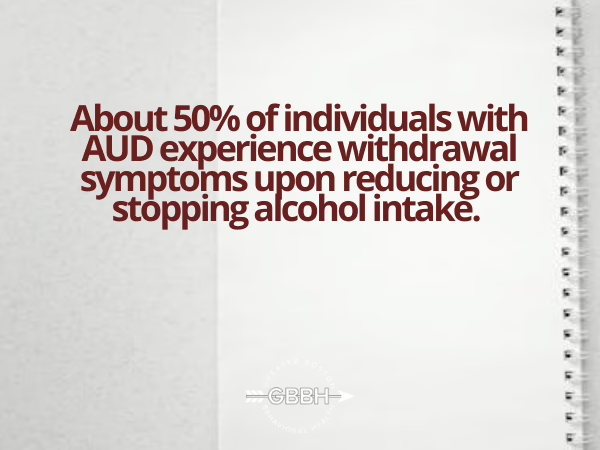For many, kicking a dependence on alcohol feels like a necessary leap of faith. The thought of quitting can be daunting, and the fear of withdrawal symptoms often creates a significant barrier to recovery. But what exactly happens to your body when you stop drinking? Understanding the process of alcohol withdrawal is crucial for navigating this challenging phase and emerging stronger on the other side.
Let’s delve into the science behind withdrawal. When you consume alcohol regularly, your brain adapts to its presence. Alcohol disrupts your brain’s natural reward system, flooding it with feel-good chemicals like dopamine. Over time, the brain downregulates its own dopamine production, creating a dependence on alcohol to experience pleasure. This is why, when you stop drinking, your brain throws a tantrum – it’s no longer getting the constant “fix” it’s become accustomed to.
The Rollercoaster of Withdrawal: From Mild Discomfort to Severe Risks
Phase 1: Mild Withdrawal (6-12 Hours After Last Drink)
This initial phase is like the first climb on the rollercoaster, a series of unpleasant but manageable symptoms. Your body is starting to adjust to the absence of alcohol, and you might experience:
- Anxiety and Irritability: Imagine a swarm of angry bees buzzing in your head. You might feel on edge, easily frustrated, and have difficulty concentrating. Simple tasks become monumental efforts, and the world feels like a more stressful place.
- Tremors: Shakiness, especially in the hands, is a common symptom. It’s like your body is having a mini-earthquake, making it difficult to hold a cup of coffee or write steadily.
- Insomnia: Falling asleep or staying asleep can be difficult, leaving you feeling exhausted. It’s like your brain is wired on overdrive, replaying anxieties and making it hard to switch off.
- Nausea and Vomiting: Your stomach might be in revolt, churning and cramping, leading to nausea and even vomiting. This can be debilitating and make it difficult to keep food down.
- Sweating: You might experience excessive sweating, particularly at night. Imagine waking up drenched in a cold sweat, feeling clammy and uncomfortable.
- Headaches: These can range from mild to moderate and disrupt your daily life. It’s like a constant dull ache behind your eyes, making it hard to concentrate or focus.
These symptoms, while unpleasant, are usually not life-threatening. However, if you’ve been heavily dependent on alcohol for a long time, you might be at risk for a more terrifying ride on the withdrawal rollercoaster.
Phase 2: Severe Withdrawal (24-72 Hours After Last Drink)
This phase is like the steepest drop on the rollercoaster, with potentially dangerous complications. If you’ve been heavily dependent on alcohol for a long time, you might experience:
- Seizures: These electrical disturbances in the brain can be life-threatening and require immediate medical attention. It’s like a sudden electrical storm in your head, causing uncontrollable muscle contractions and potentially leading to loss of consciousness.
- Hallucinations: Seeing, hearing, or feeling things that aren’t there can be a terrifying experience. Imagine struggling to distinguish reality from a distorted perception, creating a sense of paranoia and fear.
- Delirium Tremens (DTs): This is the most severe form of withdrawal, characterized by extreme confusion, agitation, fever, and hallucinations. DTs are a medical emergency and require hospitalization. It’s like being trapped in a waking nightmare, completely disconnected from reality and needing immediate medical intervention.
Why Going Cold Turkey Can Be Dangerous
While the discomfort of withdrawal might tempt you to “go cold turkey” and jump off the rollercoaster abruptly, attempting to quit without medical supervision can be dangerous, especially for those with severe dependence. The sudden drop in alcohol can lead to potentially life-threatening complications like seizures and DTs.
Building a Foundation for Lasting Sobriety
Detox is a crucial first step, but it’s like getting off the rollercoaster and catching your breath. The real journey to recovery lies ahead. Here are some potential treatment options to help you build a strong foundation for lasting sobriety:
- Therapy: Cognitive-behavioral therapy (CBT) can equip you with coping mechanisms to manage cravings and resist triggers. Imagine CBT as a toolbox filled with strategies to identify your triggers, develop healthy coping mechanisms, and challenge negative thought patterns that might fuel your addiction.
- Support Groups: Connecting with others who understand your struggles can be a source of strength and encouragement. Support groups are like a safe haven where you can share your experiences, learn from others, and feel a sense of belonging in your recovery journey.
- Lifestyle Changes: Healthy eating, regular exercise, and stress management techniques can promote overall well-being and support your recovery. Imagine nourishing your body with healthy foods, getting regular exercise to boost your mood and energy levels, and learning relaxation techniques to manage stress – all crucial components for building a strong foundation for a healthy life.
Greater Boston Behavioral Health: Your Partner on the Road to Recovery
If you or someone you know is struggling with alcohol dependence, you are not alone. Greater Boston Behavioral Health is here to help. We offer a comprehensive range of mental health programs designed to address both the physical and psychological aspects of addiction. Our team of experienced and compassionate professionals will work with you to develop a personalized plan for recovery, tailored to your unique needs and circumstances.
Contact Greater Boston Behavioral Health today at (888)278-0716 or submit online form to learn more about our programs and admissions process.
FAQ About Alcohol Withdrawal
How long does alcohol withdrawal last?
The duration of withdrawal symptoms varies depending on the severity of your alcohol dependence. Mild withdrawal symptoms typically peak within a few days and resolve within a week or two. Severe withdrawal symptoms, however, can last for several weeks or even months.
Can I safely withdraw from alcohol on my own?
In most cases, it’s not recommended to “go cold turkey” without medical supervision. Withdrawal, especially for those with severe dependence, can lead to dangerous complications like seizures and delirium tremens (DTs). A medically managed detox program can help you safely manage withdrawal symptoms and minimize discomfort.
What medications are used to treat alcohol withdrawal?
Doctors may prescribe various medications to address specific withdrawal symptoms. These might include:
- Anti-anxiety medications to manage anxiety and agitation.
- Anticonvulsant medications to prevent seizures.
- Sleeping aids to promote better sleep.
- Anti-nausea medications to alleviate nausea and vomiting.
What happens during a medically managed detox program?
A detox program provides a safe and controlled environment to manage withdrawal symptoms under the supervision of medical professionals. You’ll be monitored closely, and medications can be adjusted as needed. The program may also include support groups and therapy sessions to begin addressing the underlying causes of your addiction.
What happens after detox?
Detox is just the first step in the recovery process. Long-term treatment options like therapy, support groups, and lifestyle changes are crucial for maintaining sobriety and preventing relapse. Therapy can equip you with coping mechanisms to manage cravings and triggers, while support groups offer a sense of belonging and connection with others who understand your struggles. Healthy lifestyle changes like regular exercise, nutritious meals, and stress management techniques can improve your overall well-being and support your recovery journey.
Who can benefit from GBBH treatment programs?
Our programs are designed to help individuals struggling with all types of drug and alcohol addiction. We understand that every person’s journey is unique, and we tailor our approach accordingly.
What is the admissions process like at GBBH?
The admissions process is confidential and straightforward. You can call us at (888)278-0716tel:617-307-3842 to speak with an addiction specialist who will assess your needs and guide you through the next steps. You can also fill out our online form on our website to initiate the process.
Does GBBH offer insurance verification and assistance?
Yes, we can help you verify your insurance coverage and navigate the insurance process to maximize your coverage for treatment.
How much do GBBH programs cost?
The cost of treatment varies depending on the specific program, length of stay, and individual needs. We can discuss financing options with you during the admissions process. We are committed to helping you access the care you need, regardless of financial limitations.


